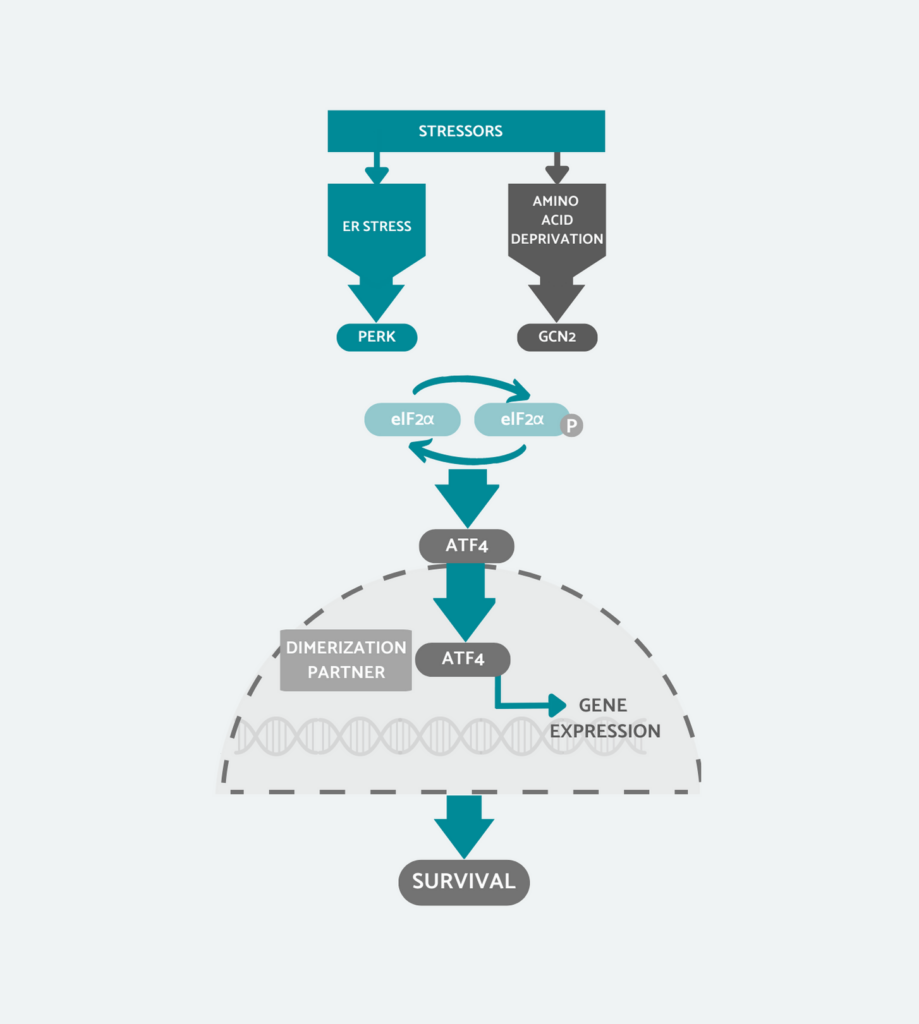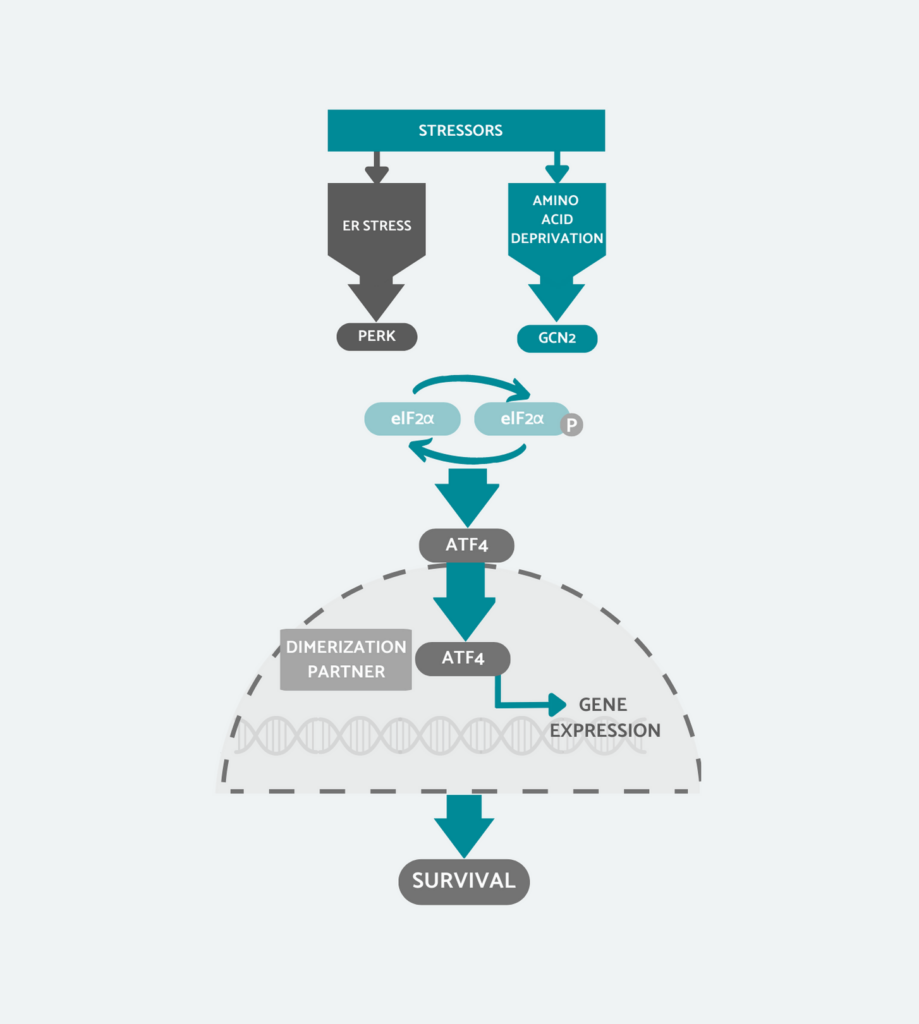Targeting the Adaptive Stress Response
Through our expertise in stress biology, we have pioneered two differentiated, clinical-stage adaptive stress response modulator programs. Our candidates have been observed to modulate key aspects of the adaptive stress response that enable tumor survival and limit the ability of the immune system to eliminate cancer cells. Preclinically, we have observed our PERK and GCN2 programs to have reproducible results in tumor regressions and anti-cancer immunity in numerous animal models as a monotherapy as well as in combination with standard of care therapies.

